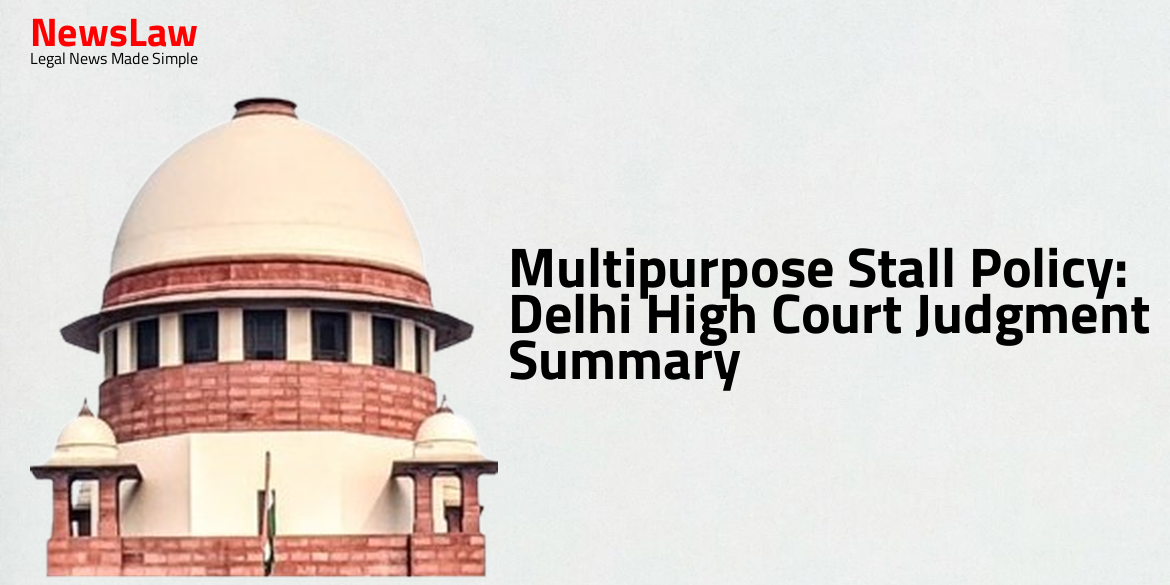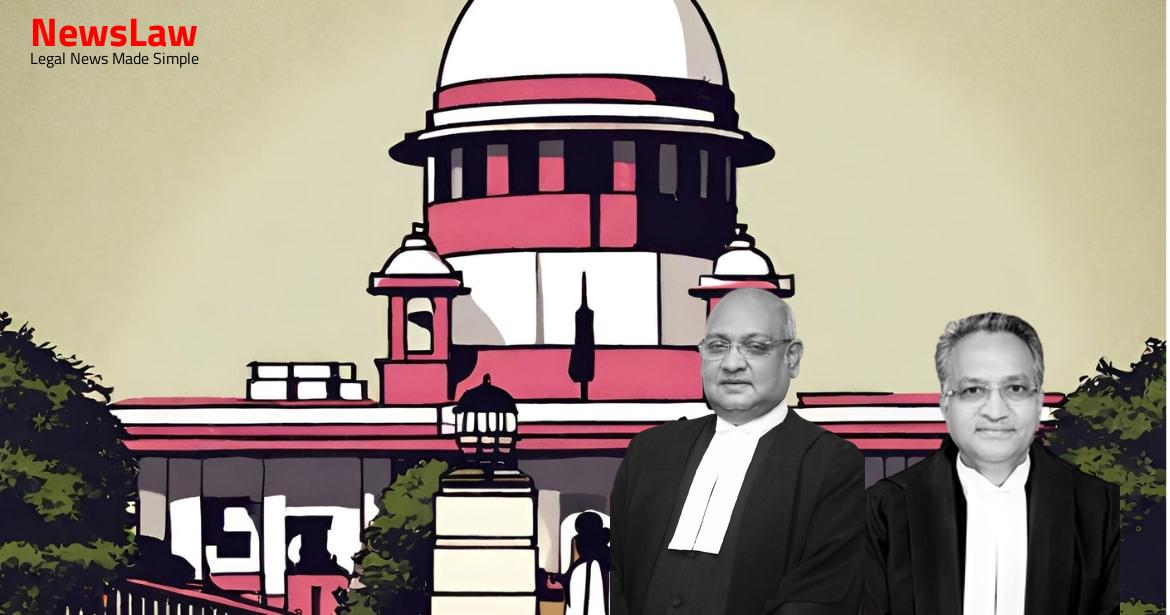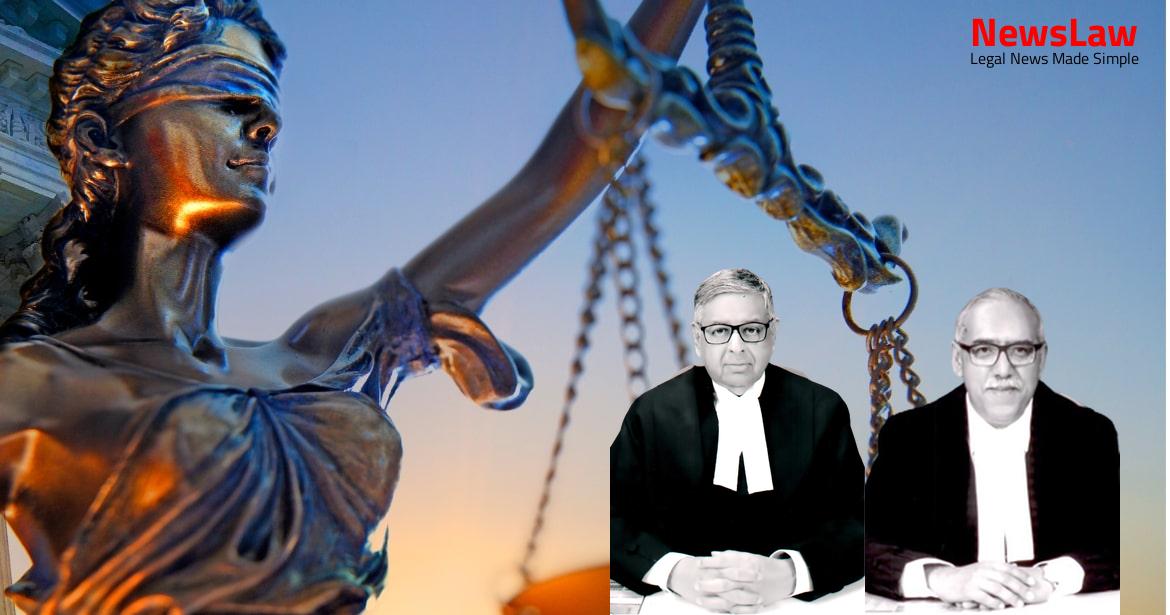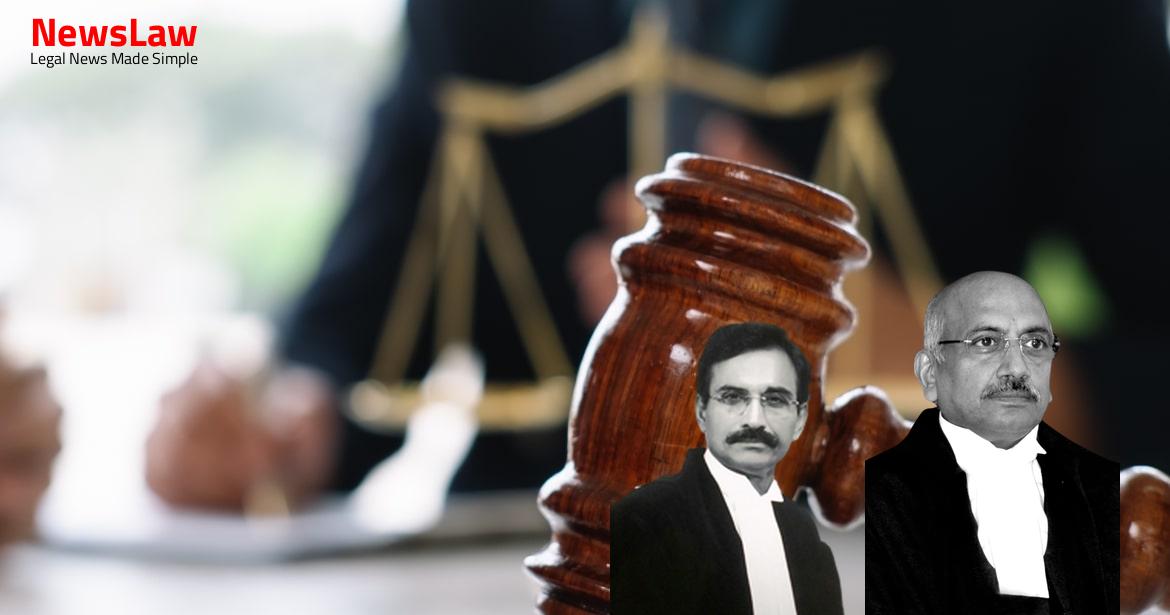Explore the detailed summary of the legal case involving the Multipurpose Stall Policy as decided by the Delhi High Court. The case discusses the challenges raised by the petitioners regarding the policy and license renewal issues. Find out how the court addressed the arguments put forth by the parties involved.
Facts
- Petitioner No.1, who operates three MPS at Bareilly Railway Station, entered into a Master License Agreement dated 31.03.2021 with Northern Railway.
- The agreement specified a tenure of five years, from the date of conversion of stall/trolley until 21.12.2022, with no provision for extension or renewal.
- Northern Railway, citing a force majeure event (Covid-19 lockdown), extended the tenure by 68 days until 27.02.2023 through a letter dated 14.12.2022.
- Petitioner No.1, along with other petitioners, had their stalls/trolleys converted to MPS by Northern Railway in 2017 under the 2017 Policy enforced by Commercial Circular No. 61 of 2017.
- The petitioners have raised legal challenges against the 2017 Policy, the Master License Agreements, and the vacation notices sent by Northern Railway to vacate the MPS by 27.02.2023.
- The Master License Agreements also involved Petitioner No.2 and Petitioner No.3 for operating one MPS each at Moradabad Railway Station and Haridwar Railway Station, respectively.
Arguments
- The petitioners argue that their licenses have expired and they have no right to compel the extension by the respondents.
- They claim that the 2017 Policy is legally sound and non-arbitrary, applicable universally to stall/trolley owners without discrimination.
- The petitioners’ licenses are governed by the 2017 Policy, which clearly states no renewal or extension of licenses.
- They argue that the petitioners have availed benefits of the 2017 Policy and cannot challenge it upon license expiry.
- The petitioners challenge Clause 5 of the 2017 Policy as violating constitutional rights and creating unfair competition.
- They argue that the demands raised are rooted in paragraph 1744 of the Indian Railways Commercial Manual.
- The petitioners claim a legitimate expectation of license renewal throughout their lifetime and future generations.
- They contend that the refusal to renew licenses for certain stalls/trolleys is arbitrary and violates fundamental rights.
- The petitioners seek an extension of the license period due to reduced foot traffic at railway stations post-lockdown.
- They argue that they converted their stalls to MPS units under coercion and unequal bargaining power.
- The respondents argue jurisdiction based on exclusive jurisdiction and arbitration clauses in license agreements.
- They claim that the licenses for reserved categories are re-tendered within those categories, ensuring fairness.
- The respondents assert that the 2017 Policy prevents monopolization of licenses and provides equal opportunity for all.
- The petitioners were aware that there would be no renewal under the new policy, balancing livelihood and equal opportunity.
- They challenge the arbitrariness of Clause 11 of the 2017 Policy in applying to existing stalls/trolleys.
- The petitioner cannot claim ignorance as the contract clearly stated a non-renewable period of five years.
- The petitioner willingly signed and enjoyed the benefits of the contract for the specified five-year term.
- The petitioner cannot revert to a policy that is no longer in effect or applicable to them.
- The Karnataka High Court dismissed the petitioner’s argument citing that the Supreme Court judgment referenced a different policy not relevant to the current case.
- The contract in question falls under the Multipurpose Stall Policy, not the Catering Policy as argued by the petitioner.
Analysis
- The petitioners’ contentions that they were compelled to convert their stalls/trolleys to Multipurpose Stalls (MPS) are dismissed as untenable.
- The 2017 Policy explicitly states that there will be no extension or renewal of MPS units, with the provision for participating in fresh bids if eligible.
- The argument of the petitioners regarding a ‘legitimate expectation’ for renewal of licenses lacks merit.
- The judiciary cannot legislate on policy decisions made by the executive based on prevailing circumstances.
- The Court confirms that the petitioners do not have an indefeasible right to perpetual renewal of licenses as per the terms of the 2017 Policy.
- The relevant extract from the judgment discusses a specific part, highlighting point number 55.
- The point mentioned is not provided in the query, and it will require the specific details of point number 55 for a detailed summary.
- The summary of this part of the judgment cannot be generated without the exact content of point number 55.
- The Karnataka High Court rejected a challenge to the 2017 Policy in a case titled Gulfeeza Begum v. Union of India.
- The court observed that past relaxations in the policy due to changes in examination patterns or syllabus do not entitle participants to claim mandamus for further relaxation.
- A writ of Mandamus cannot be used to compel the enactment of laws or framing of rules.
- Mandamus is applicable for enforcing fundamental rights, statutory rights, or duties related to them.
- The sine qua non (essential condition) for issuing a writ of Mandamus is a breach or threat of breach of a fundamental, statutory, or enforceable equitable right.
- Judicial review of policy decisions and mandamus for framing policies are distinct.
- Legitimate expectation does not always guarantee relief, as public interest, policy changes, conduct of the expectant, or valid reasons given by decision-makers can negate it.
- Arbitrary refusal to renew a license by a public body is not permissible under the constitutional system.
- Courts interpret laws and may review the validity of policy decisions, involving a creative process.
- Individual license agreements and the 2017 Policy contain an arbitration clause.
- The arbitration clause can be invoked by the petitioners if they are aggrieved due to insufficiency of extension on account of the Covid-19 situation.
- The arbitration clause can also be invoked by the petitioners if they wish to claim damages on any account.
- Petitioners are at liberty to initiate appropriate proceedings by invoking the arbitration clause.
Decision
- Existing Bookstall/table, Misc. Stalls/trolley, Chemist Stalls/corner given option to convert to MPS by paying License Fee.
- No new allotment or renewal of existing stalls/trolleys by railways.
- Existing stalls/trolleys allowed for conversion to MPS as per policy.
- One-time exercise for conversion to be completed within 90 days.
- MPS policy applicable immediately, supersedes previous policies.
- Existing licensees given two options: convert to MPS for 5-year tenure or continue with existing stalls till expiry.
- Petitioners in this case opted for conversion to MPS.
- Granted 3 months to vacate stalls after conversion.
- Renewal of License process initiated by petitioners.
- Maintainability of petitions upheld by the Court.
Case Title: ISHWARLAL JAWARLAL JOSHI Vs. UNION OF INDIA & ORS. (2024:DHC:4452)
Case Number: W.P.(C)-10758/2023



